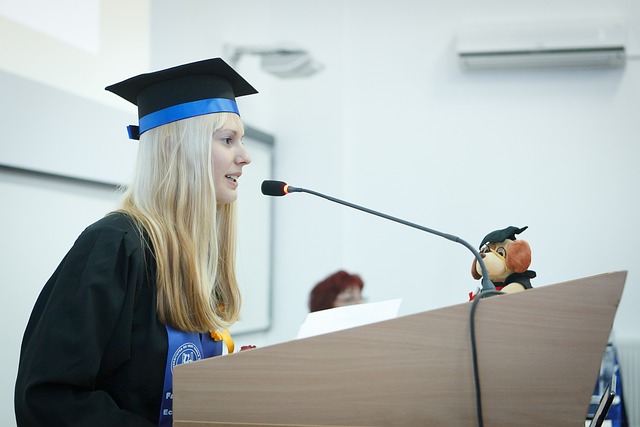For many a year, I have travelled and travelled. Currently I am in Mexico, while studying Irish football (soccer for some of you) media. Strange situation, I know! Travel is the one thing that has always excited me, ‘what is out there?’, ‘how do others live?’ I guess this is natural curiosity (though the wife may say I am just nosey), and maybe the reason why I am doing a PhD. There is one reason travel has left me with nervous trepidation in recent years, and that is the conference.
Not to boast (maybe a little), so far, I have a 100% success rate in applications, and have been to exotic locations such as Barcelona, Prague and Leeds (seriously great city). If, like me, you are working class (whatever that means, nowadays), and new to academia, they may seem alien. It may even seem strange to meet people whose work you have read extensively. But, not to worry, this article will try its best to reassure all you new PhD students, allay your fears and provide some tips.
Applying
Any conference you apply for is going to need an abstract. The requirements for such will change in form and format: I was recently required to write a small bio for one of them. Abstracts are usually somewhere between 200-500 words and involve you presenting and describing the main points of what you will present at the conference. Depending on the word count, you may give a small review of literature and theories that you have based your work on. It must be stated that it is important to follow any guidelines expressed by the organizers, otherwise your abstract may be rejected, despite the value or importance of the research. The most important aspect is to get across the purpose, background, benefits and importance of your research. Keep in mind you are trying to convince the organizers that your work can be of value to the conference. Also, keep in mind the type of audience you would be presenting to, and the implications of this on how and what you will present.
Preparing
My academic background is more within the production side of the media, whether from a creative perspective or examining the role of the media critically/theoretically. What this means is that when I am preparing for a conference presentation, I like to make my slides appealing and intriguing. It keeps attendees interested and stops them from sliding into boredom. As anyone that has attended a conference will tell you, there is nothing interesting about a wall of words. When preparing for time, I try and aim for a minute per slide, though it never works out that way. It is also important not to get caught up in too much detail about background or methods. I have learned to get to the data as quickly as possible, because 1) you have a good chance of running out of time, and 2) the data and results are often the reason people are there.
The final consideration is whether to use a script. I tend to write one to give me a general theme of what I am talking about, but admittedly may over–rely on it. As with most things in life, it depends on what works for you, whether it is a script, bullet points or plain old winging it, do what feels comfortable. Remember, no one knows your work better than you.
Note: Remember to practice, practice, and finally… practice!!
Attending
So, the big weekend/day (delete where appropriate) has arrived. You are all prepared, hopefully all flights and accommodation have been organized by your institute. Nerves are probably kicking in; you are feeling lost and do not know what to do, or who to talk to. You may find that many people who attend know each other from previous conferences or committees, and many look comfortable in their surroundings. Though, it is different for PhD students, and it is them who I usually make a beeline for. My reasoning for this is that a PhD journey can often be a lonely one, so to find other students who are sharing the same experiences and journey can feel like a godsend. This also allows me to settle into my surroundings, while understanding and exploring the research of early career academics.
It is important to make these connections, which is something I, over time, have had to adjust to. I now realize the importance of networking and getting your name out there, though this has not always been the case. At my first conference, I met a researcher who had a connection with one of my supervisors, which made the approach easier. Though most are happy to talk about their work, it is easy to be intimidated by the big names in your field. One who I approached, and whom I had read a lot of, which I have since based some of my research on, was very excited that I knew of their work. I also find it is helpful to attend any dinners or drinks events organized. It is usually a time to let your proverbial hair down and relax.
Presenting
Now it is your time to shine. By this stage, you have hopefully put in the work and are well prepared. My research – like all PhD projects – is quite specific and relatively unique, as it studies media representation of a soccer league that could be considered quite niche. When I attend sports communication conferences, interest can be quite sporadic. Though, when I recently attended a football conference, there was much more interest. Depending on your area and subject, it may differ for you, so your experience may be quite the contrast to mine. Just remember to relax, and enjoy your time in the spotlight. People want to hear about your research and are generally interested – I also have a sneaky feeling that the more experienced researchers are just as nervous as yourself. As for the questions and discussions section, it can be mixed. I have attended a conference where I received no feedback or questions. That is nothing to worry about, as time can be limited.
Final Thoughts
Hopefully I have helped with this little article. Conferences can be, and truly are, amazing experiences. All the conferences I have attended have been different in their own little way. They are great opportunities to discover what is happening in your field, and helpful in gathering feedback for your research and making meaningful connections. Also, the part you are nervous about (your presentation) is only really a small element of the event. I am also certain that many more experienced academics also feel the same. Just remember: the person that knows your research the best is you. Conferences can also be in the most interesting locations. Though, hopefully your institute finds you a hotel closer to the conference than mine do, if the Leeds experience is anything to go by, which is a story for another time.
I am a great believer that the journey of life should not be easy, and you should challenge yourself at every opportunity. As the late and great Tony Bourdain was a huge influence, I leave you with one of his greatest quotes: “The journey is part of the experience — an expression of the seriousness of one’s intent. One doesn’t take the A train to Mecca”.






